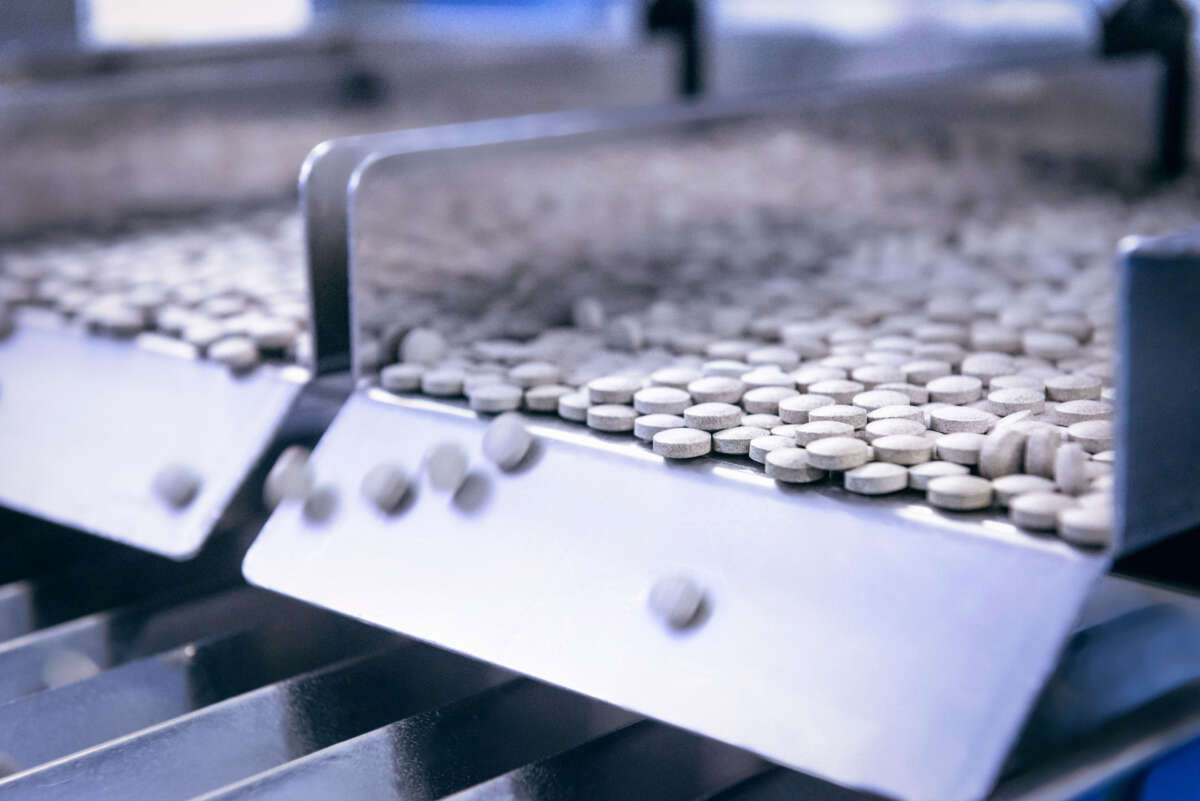As the pharmaceutical industry is toiling around the clock to destroy Democrats’ plan to allow Medicare to negotiate drug prices, a new report reveals that top industry players are raking in billions, padding their own pockets as they work to revoke benefits from millions of people.
According to an analysis by Accountable.US, the five biggest pharmaceutical companies in the U.S. collectively reported profits of $82 billion in 2022, an increase of nearly $9 billion from 2021. Basking in these profits, the companies turned around and increased their stock buybacks and dividend payouts by nearly $7 billion, compounding hundreds of billions of dollars that large pharmaceutical companies have spent on buybacks and dividends in recent years.
The analysis included companies like Eli Lilly, the U.S.’s largest pharmaceutical company based on market cap, which has raised the price of its insulin drug Humalog by 600 percent since 1996. Eli Lilly saw its net income increase by 12 percent to over $6 billion in fiscal year 2022.
Johnson & Johnson, the second largest pharmaceutical company in the U.S., spent nearly $18 billion on dividends and stock buybacks in fiscal year 2022, despite its net earnings decreasing by 14 percent between 2021 and 2022 after the company bought a medical device company for $16.6 billion.
Merck, the third-largest pharmaceutical company, saw its profits climb by 11 percent last year, resulting in a $14.5 billion profit. Merck has filed one of several industry-backed lawsuits against last year’s Inflation Reduction Act (IRA), claiming that the bill’s plan to allow Medicare to begin negotiating the price of less than two dozen drugs over the next six years is unconstitutional and violates the company’s First Amendment rights to free speech.
On top of Merck’s lawsuit, each of the five pharmaceutical companies included in the analysis contributed funds to or sits on the board of Big Pharma lobbying firm PhRMA. In addition to filing its own suit over the Medicare drug price negotiation plan, PhRMA lobbied fiercely against the IRA; in 2022, PhRMA was the biggest spender of all pharmaceutical lobbying groups, shelling out $29.2 million for its lobbying efforts. Overall, the industry spent a record $372 million on lobbying last year, with a large portion of lobbying efforts aimed at opposing the IRA.
Pfizer, for instance, has contributed at least $106,000 to PhRMA over the past decades, while Eli Lilly and AbbVie have given at least $45,000, the analysis finds. Pfizer’s CEO, who called the drug price plan that’s common in other U.S. agencies “negotiation with a gun to your head,” is the treasurer of PhRMA, while Eli Lilly, Johnson & Johnson and Merck are represented on PhRMA’s board. AbbVie’s Executive Vice President Jeffrey R. Stewart was on PhRMA’s board of directors before the company departed the group last year.
The pharmaceutical industry’s profits — on top of their quest to kill government programs that could help some patients afford their products — paint a picture of an industry hungry to reward its shareholders over everything else.
“Seniors and families already struggling to afford life-saving medicines are told to brace for further price hikes by the same industry that saw its profits and shareholder rewards skyrocket by billions in a year. It only adds up to corporate greed,” Liz Zelnick, Director of Economic Security and Corporate Power for Accountable.US, said in a statement. “Pharma executives’ claims that research and development expenses drive costs remain unconvincing when those costs are often eclipsed by billions of dollars in handouts to a small group of wealthy investors.”
We have 8 days to raise $48,000 — we’re counting on your support!
For those who care about justice, liberation and even the very survival of our species, we must remember our power to take action.
We won’t pretend it’s the only thing you can or should do, but one small step is to pitch in to support Truthout — as one of the last remaining truly independent, nonprofit, reader-funded news platforms, your gift will help keep the facts flowing freely.
